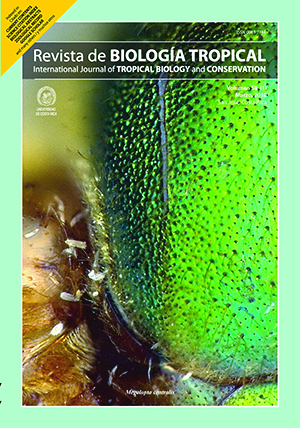Abstract
Gonad maturity is usually evaluated through macroscopic analysis of the gonads. In sea turtles, the maturation stages are associated with body size, depending on the studied marine stock. Fishermen classify turtles bigger than 65.0cm as sexually mature. If they have secondary sex characters they are recorded as breeding males. We compared body size with macroscopic and microscopic gonad characteristics in two Cuban turtles. Eighteen individuals of C. mydas and twenty of E. imbricata was obtained from the legal fishery stock of Jardines del Rey Archipelago (Cuba), from October 2005 and 2006. In males, breeding condition (maximum spermiogenesis) was checked by histological analysis of the testes. In females, sexual maturity was identified by the presence of vitellogenic follicles or ovarian cor-pora. Most males were immature (C. mydas: 79.0cm; E. imbricata: 73.1±4.9cm, n=3) and lacked secondary sex characters. Some E. imbricata without a developed penis were in spermatogenic stages II to IV (i.e. pubescent). Most females were immature (C. mydas: 79.6±7.7cm, n=17; E. imbricata: 69.0±7.1cm, n=16; i.e.prepubescent and pubescent. The prepubescent females had ovaries with previtellogenic follicles near 1.0mm in a compact and yellowish stroma. The pubescent females had ovaries with previtellogenic follicles between 2.0 and 3.0mm. The stroma was more loosened and irrigated than in prepubescent turtles. The finding of spermatogenic activity in pubescent males indicates asynchrony between testicular and penial development in E. imbricata. The cur-rent phenotypical approach used by fishermen is not enough to determine sexual maturation in these turtles. The minimal size tentatively should be changed to: C. mydas: above 93.0cm and E. imbricata above 79.0cm.
##plugins.facebook.comentarios##

This work is licensed under a Creative Commons Attribution 4.0 International License.
Copyright (c) 2010 Revista de Biología Tropical






